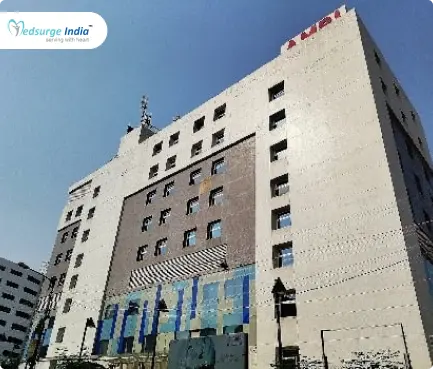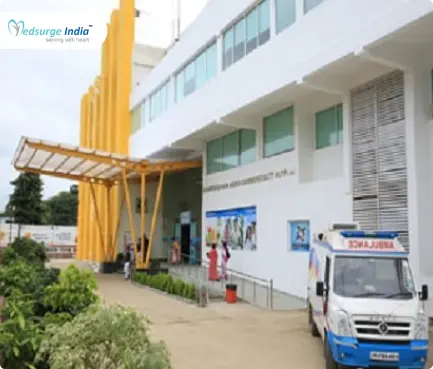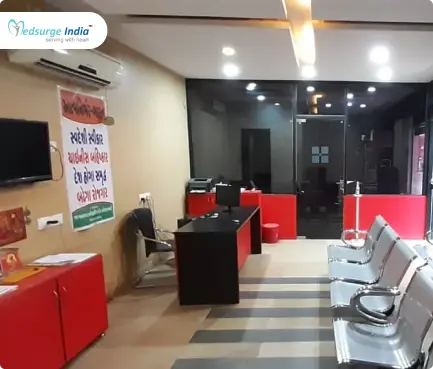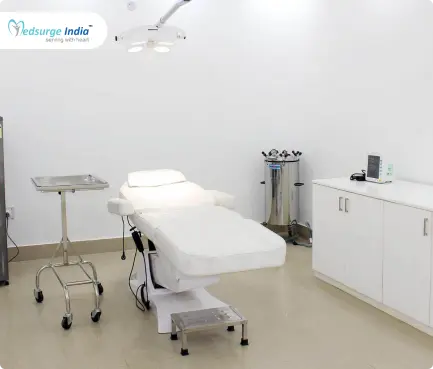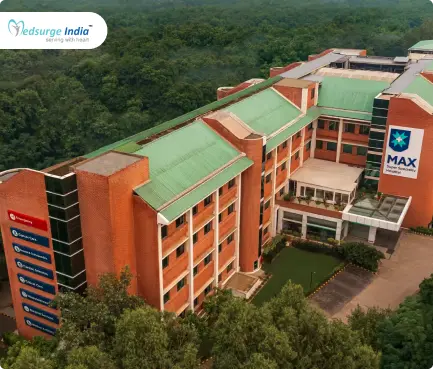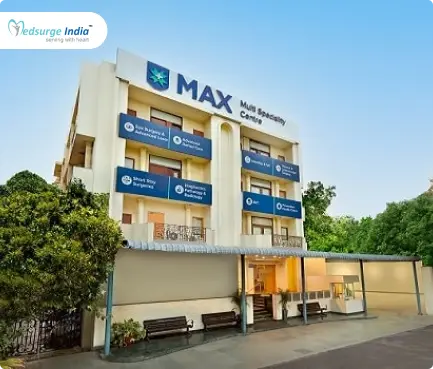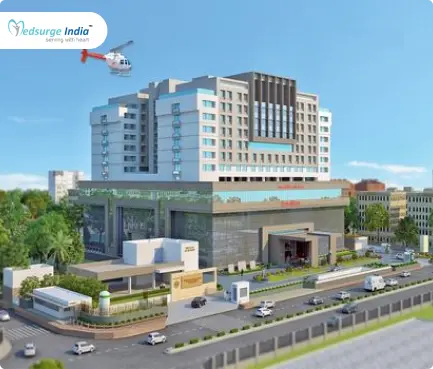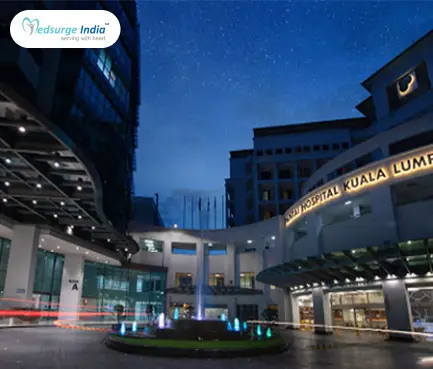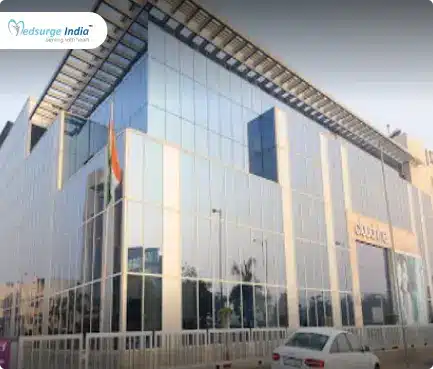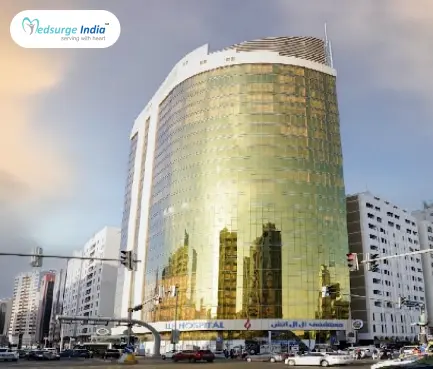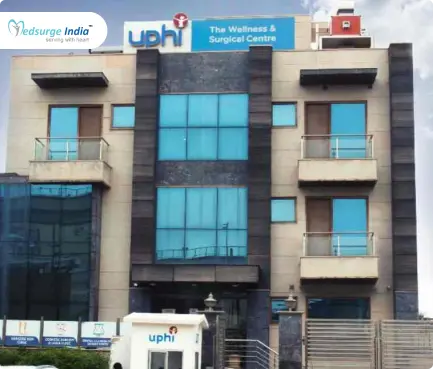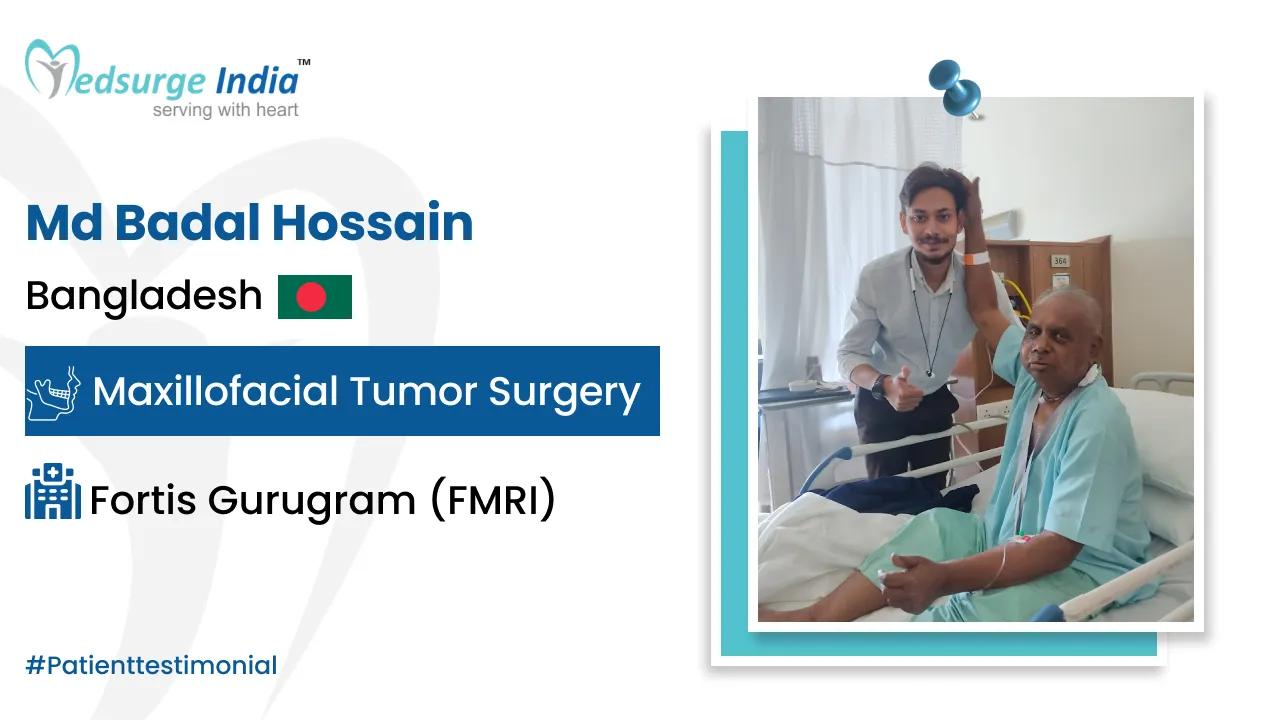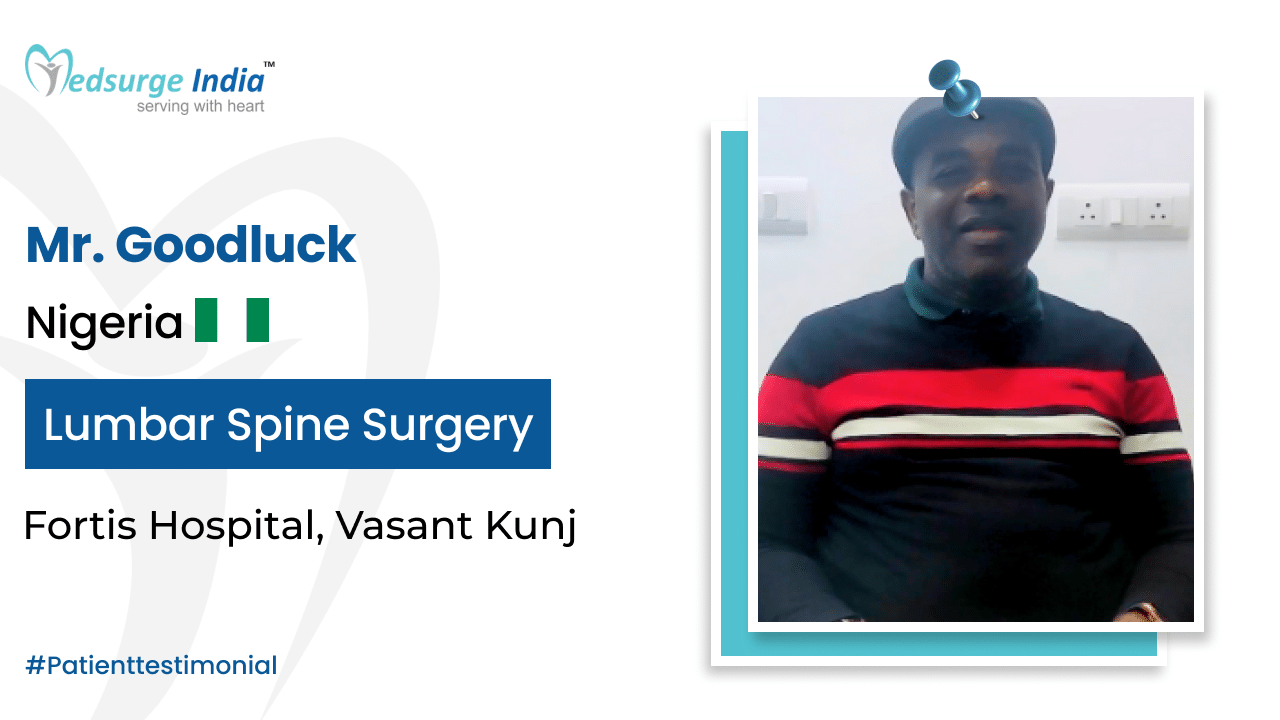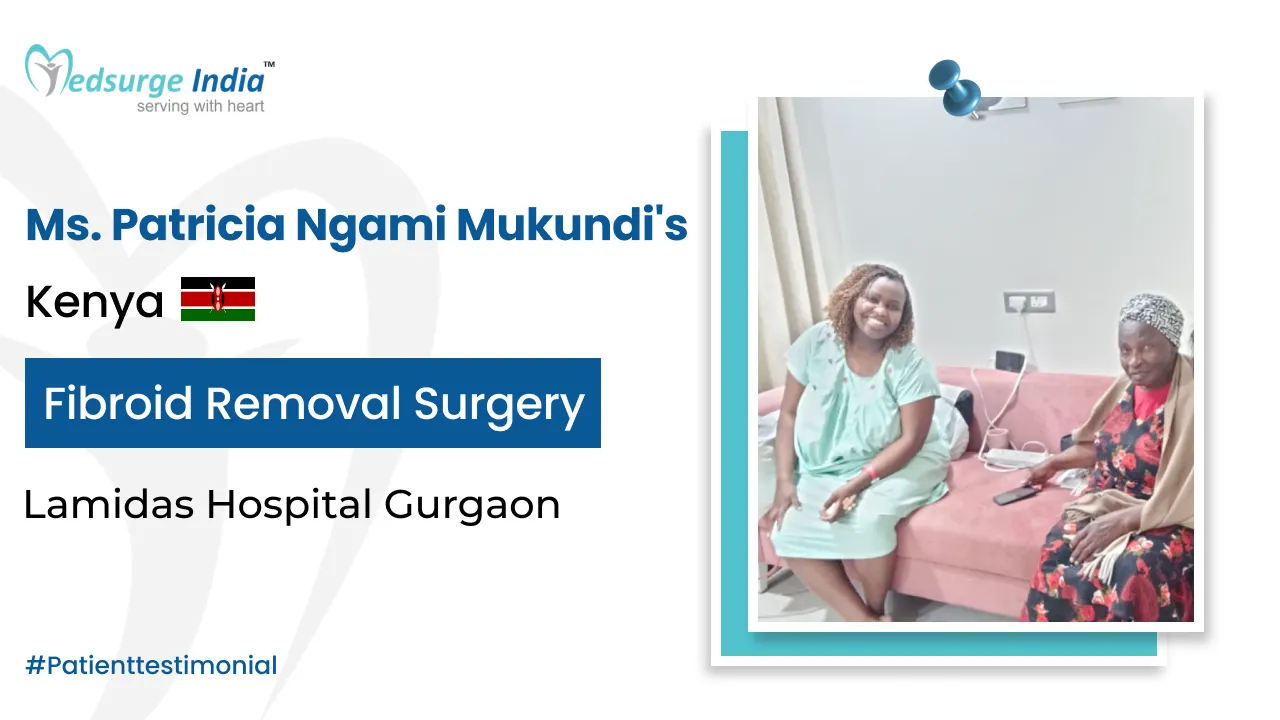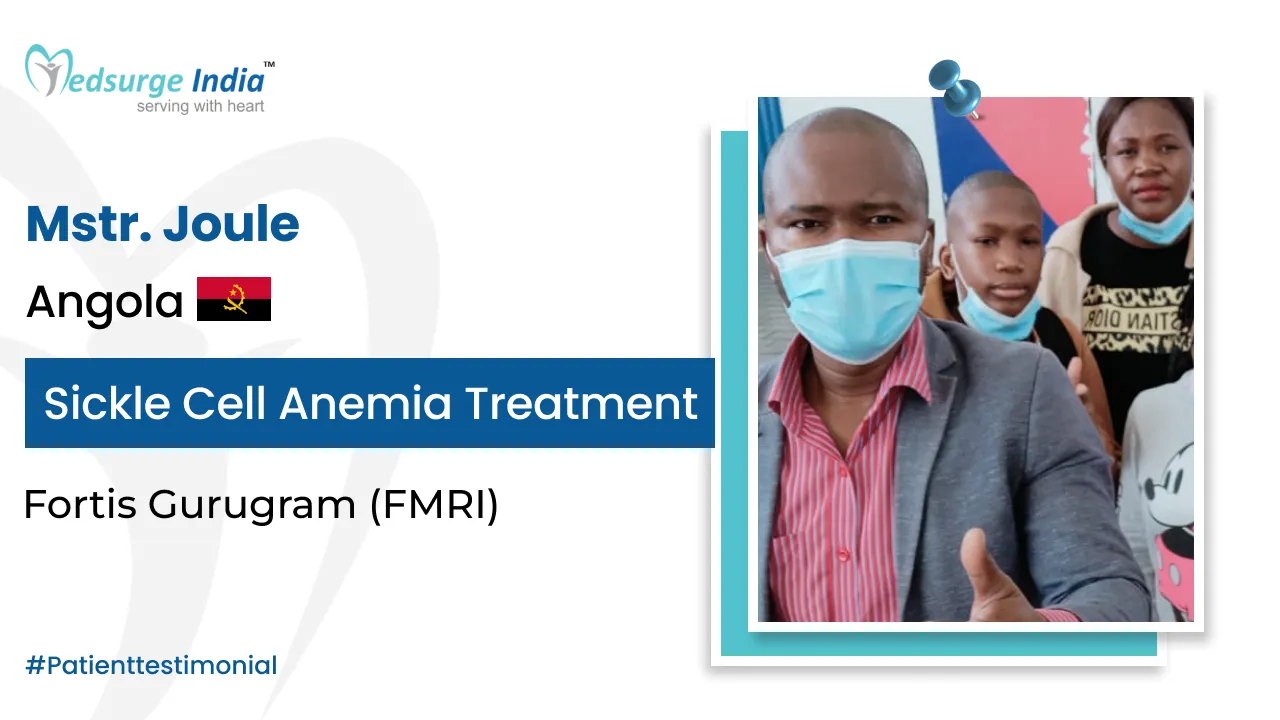
When the spinal cord gets compressed, it can occur anywhere from the neck to the lower back. This compression can happen due to age-related changes, hernias, injuries, infections, cancer, unusual bone growth, or blood clots. Symptoms may include numbness in the limbs, pain in the neck or back, loss of feeling in the feet, or difficulty with hand-eye coordination.
The cost of spine decompression surgery in India is much lower than in developed countries like the US and Russia. The skill of the orthopedic surgeon and the advanced medical technology used in leading Indian hospitals contribute to the success of these surgeries.
Spine Decompression Surgery Cost in India
Spine Decompression Surgery Cost in India starts from between Rs 1,50,000 and Rs 5,40,000 (1750 USD to 6250 USD) and even more depending on the procedure.
Types of Spine Decompression Surgery Cost in India
| Types of Spine Decompression Surgery | Price of the Surgery |
| Laminectomy | $1,700 to $2,200 |
| Laminotomy | $1,700 to $2,200 |
| Microsurgical laminoplasty | $2,500 to $5,000 |
| Microdiscectomy | $1,700 to $2,200 |
| Minimally invasive lumbar discectomy | $2,500 to $5,000 |
| Foraminotomy | $2,200 to $3,100 |
| Discectomy | $1,700 to $2,200 |
| Spinal fusion | $3,100 to $6,200 |
Spine Decompression Surgery Cost in India Vs Other Countries.
| Countries | Price |
| India | $1,700 to $6,250 |
| Turkey | $3,000 to $21,000 |
| Australia | $25,000 to $35,000 |
| United State | $45,000 to $55,000 |
| UAE | $16,500 to $25,500 |
| United Kingdom | $35,000 to $40,000 |
Key Components That May Affect The Cost of Spine Decompression Surgery in India
Below here are some key factors that you should keep in mind as it can affect the cost of spine decompression surgery in India:
- Types of surgery: Procedures like laminectomy, discectomy, foraminotomy, and microdiscectomy are examples of lumbar spine decompression surgeries. The cost can change based on the specific procedure recommended by the surgeon.
- Severity of the condition: The price for cervical decompression surgery can differ depending on the complexity of the lumbar spine issue and the severity of the symptoms. More complicated cases may require longer surgery, special tools, or advanced techniques, which can increase costs.
- Choice of hospital: The hospital or clinic chosen can greatly affect the cost of lumbar spine decompression surgery. Prices vary based on factors like the hospital’s reputation, location, and available facilities.
- Surgeon’s expertise: The cost of the surgery may also depend on the surgeon’s skill and reputation. If a surgeon has more experience and charges higher fees, the overall cost of the procedure may rise.
- Anesthesia and medications: The total cost can be influenced by the anesthesia and medications required during and after the surgery. Different types of anesthesia and drugs may be necessary based on the patient’s needs and the complexity of the procedure.
- Diagnostic tests: Preoperative tests like X-rays, MRI scans, or CT scans may be needed to diagnose the condition and plan the surgery. These imaging tests help identify the source of the pain and their costs are added to the overall treatment expenses.
- Post-operative care: Costs for hospital stays, follow-up visits, medications, and rehabilitation can increase due to post-surgery care.
What is Spine Decompression Surgery?
A surgical procedure known as spinal decompression surgery can be carried out either by open surgery, minimally invasive spine surgery, or endoscopic spine surgery (ESS). The symptoms of spinal cord compression, which aggravates the nerves, can be alleviated by a number of methods. Several of the methods include:
What are the Different Types of Spine Decompression Surgery?
There are several types of spine decompression surgery, including:
- Laminectomy: The removal of the lamina, or bony roof, over the spinal canal. This procedure decompresses both sides of the spinal canal.
- Laminotomy: The removal of a small portion of the lamina to decompress one side of the spinal canal. This procedure leaves most of the lamina intact.
- Microsurgical laminoplasty: A minimally invasive procedure that uses small incisions and an operating microscope.
- Microdiscectomy: A minimally invasive procedure that removes part of a herniated disc that’s putting pressure on a spinal nerve.
- Minimally invasive lumbar discectomy: A procedure that uses a scope to make small incisions in the skin to remove part of a herniated disc.
- Foraminotomy: The removal of bone around the neural foramen, which is the canal where the nerve root exits the spine.
- Discectomy: The removal of part of a bulging or degenerative disc to relieve pressure on a nerve.
- Spinal fusion: A procedure that joins two or more vertebrae together with a section of bone to stabilize the spine.
Other types of spine surgery include laser spine surgery and robotic spine surgery.
What are the Types of diagnosis are done for Spine Decompression Surgery?
Diagnosis for Decompression surgery :
- significant pain, weakness, or numbness in leg, neurological symptoms not improved with physiotherapy or medication
- difficulty walking or standing that affects the quality of life
- diagnostic tests like MRI, CT, Myelogram confirming the severity of the condition
- Cauda equina syndrome
- Pre-operative Assessment
General health check to ascertain fitness for surgery, past medical, surgical history
- Blood tests
- X-ray, MRI scan
How is the Procedure Done for Spine Decompression Surery?
After going through all the test your doctor will start the surgery. Anesthesia is administered for this procedure, which is conducted under general anesthesia. A skin incision is made along the center of the back, the length of which is determined by the number of laminectomies to be performed.
The strong back muscles are carefully separated and retracted to expose the lamina of each vertebra. Following this, an X-ray is taken to confirm the correct vertebra before proceeding with either a laminectomy or laminotomy, during which the lamina at one or more segments is removed to relieve pressure on the spinal nerve.
After the decompression is completed, the muscle and skin incisions are closed using sutures or staples. The duration of the hospital stay typically ranges from 1 to 3 days, depending on the extent of decompression, with recovery expected to take between 4 to 6 weeks. Staples or stitches are usually removed 10 to 14 days post-surgery.
Post-operative restrictions include:
– Avoiding prolonged sitting
– Refraining from lifting objects heavier than 10 pounds
– Not twisting or bending at the waist
– Abstaining from smoking, as it can impede the healing process.
Complications Of Spine Decompression Procedure:
As in any surgery, there can be complications:
- Pain
- Bleeding
- chances of blood clots (DVT)
- Infection
- Continued pain or numbness
- Loss of bladder or bowel control
- Infection in the spine
- Nerve damage or persistent pain. Any procedure on the spine has the chance of injuring the spinal cord or nerves. Damage might result in paralysis or even numbness.
- Leaking of spinal fluid.
Why Do Individuals Prefer to Have Spine Decompression Surgery in India?
The country has some of the best medical care facilities and services in Asia, making medical tourism in India very popular. The best Hospitals for Spine Decompression Surgery in India provide all types of disease-related surgeries using advanced technology. Also, Spine Decompression Surgery in India is much more affordable as compared to other states or nations around the world. An international patient can expect to pay 50-60% less for Spine Decompression Surgery in India.
The hospitals for Spine Decompression Surgery in India provide comprehensive appropriate treatment, including comprehensive pre-operative evaluations, minimally invasive surgical options, and post-operative rehabilitation programs. At these medical facilities, patients may anticipate personalized care, individualized attention, and compassionate treatment. Leading international agencies like the Joint Commission International (JCI) or the National Accreditation Board for Hospitals and Healthcare Providers (NABH) have accredited the hospitals.
Best Hospitals for Spine Surgery in India
- Max Hospital Saket, New Delhi
- Fortis Hospital Noida
- Fortis Hospital Gurgaon
- Manipal Hospital Dwarka, Delhi
- Amrita Hospital, Faridabad
- Global Hospital Mumbai
- Kokilaben Dhirubhai Ambani Hospital Mumbai
- Apollo Hospitals, Greams Road, Chennai
- MGM Healthcare, Chennai
Medsurge India A Guide For You!
Medsurge India is a prestigious support system for patients looking for doctors, hospitals, and specialized treatments. Our staff will provide you with a list of licensed, renowned, and trustworthy physicians and medical facilities in relation to your medical needs. Additionally, we offer a treatment strategy that fits your budget. Apart, we assist patients with obtaining travel authorizations, medical visas, and a multitude of other things.
Also, read– Things you must know about minimally invasive surgery cost in india
Get Free Cost Estimation
The Most Important Frequently Asked Questions
Q: What is Operation Decompression?
A: A small portion of the bone over the nerve root or disc material from under the nerve root is removed to allow the nerve root more space to provide a safer healing atmosphere. Decompression surgery is essentially done to relieve the compressed nerves in order to reduce pain.
Q: When is surgery for decompression required?
A: If the symptoms are excessive in terms of impairing the quality of life and have not progressed with physical therapy or treatments and spinal injections, decompression may be suggested.
But we must bear in mind that if there is no pathological cause of the pain, surgery can only correct an anatomical defect, so we have to be able to recognise it, otherwise the pain and neurological symptoms would remain constant even after surgery. Only experiencing pain and having failed conservative treatment is not an indicator for surgery.
Q: What does elective spinal surgery mean to you?
A: Almost all spine operations are elective, meaning it’s the discretion of the patient to either to have the surgery or not to have the surgery. Patients should decide to have surgery in consultation with the surgeon, depending on the level of pain and the amount of disability.
Q: What is the length of stay for spine decompression surgery?
A: A hospital stay of 1 to 3 days is expected for the surgery, and recovery takes between 4 and 6 weeks.
Q: What are the outcomes of spine decompression surgery in clinical terms?
A: The outcomes of the procedure are entirely dependent on the patient. It is important to maintain a positive attitude and conduct your physical therapy exercises faithfully. It can dramatically reduce pain by maintaining a weight that is suitable for your height. To prevent re-injury, you need to be careful and need to use proper posture and lifting techniques.
Q: What is the prognosis for surgery for spine decompression?
A: The decompression spine surgery success rate is high, with approximately 90 percent of patients reporting strong leg pain relief after surgery.
Q: What do vertebrae mean?
A: The 33 bones comprising the spinal column are classified into 7 cervical, 12 thoracic, 5 lumbar, 5 sacral and 4 coccygeal vertebrae.
Q: What does Sciatica mean to you?
A: Sciatica is a condition in which pain caused by pressure on the nerve in the lower back radiates down the leg.
Q: What’s the syndrome of cauda equina?
A: Cauda equina syndrome is an abnormal function of the bladder and intestine, caused by compression of the spinal nerve roots, with a lack of sensation in the buttocks.
Q: What does DVT mean? (Deep Vein Thrombosis )
A: Since blood clots form within the veins of your legs, deep vein thrombosis (DVT) is a potentially serious condition. If the clots break free and move to the lungs, it can be life threatening .
Q: What is the conservative Spine Decompression treatment method?
A: Physiotherapy, medicines, and spinal injections are also provided by conservative care strategies.
Q: What are the drawbacks of surgery with decompression?
A: Stenosis or arthritis is not healed by decompression; it only relieves some of the symptoms that can recur as the degenerative phase progresses.
Q: Who’s going to perform the operation?
A: The operation may be performed by a neurosurgeon or an orthopedic spine surgeon with advanced training .
Top Hospitals for Spine Decompression Surgery in India
Top Doctors for Spine Surgery
Dr. Gururaj M
Senior Consultant
Experience: 15 Years
Indian Spinal Injuries Center, New Delhi
New Delhi, India
Dr. H. S. Chhabra
Chief of Spine and Rehabilitation Centre
Experience: 32 Years
Sri Balaji Action Medical Institute, Delhi
Delhi, India
Dr. Neeraj Gupta
Consultant
Experience: 20 Years
Indian Spinal Injuries Center, New Delhi
New Delhi, India
Dr. Vidyadhara S.
HOD
Experience: 21 Years of experience
Manipal Hospital (Old Airport Road) Bangalore
Bangalore, India
Dr. Vineesh Mathur
Director , MBBS, MS, DNB
Experience: 28+ years of experience
Medanta - The Medicity, Gurgaon
Gurgaon, India
Dr. Saransh Gupta
Consultant
Experience: 17 Years
Indian Spinal Injuries Center, New Delhi
New Delhi, India
Dr. Vikas Tandon
Senior Consultant
Experience: 23 Years
Indian Spinal Injuries Center, New Delhi
New Delhi, India
Dr. Sajan K Hegde
Senior Consultant
Experience: 34 years of experience
Apollo Hospitals, Greams Road, Chennai
Chennai, India
Dr. Ankur Nanda
Senior Consultant
Experience: 20 Years
Indian Spinal Injuries Center, New Delhi
New Delhi, India
Dr. Rajagopalan Krishnan
Senior Consultant
Experience: 35 years of experience
Indraprastha Apollo Hospital, New Delhi
New Delhi, India





